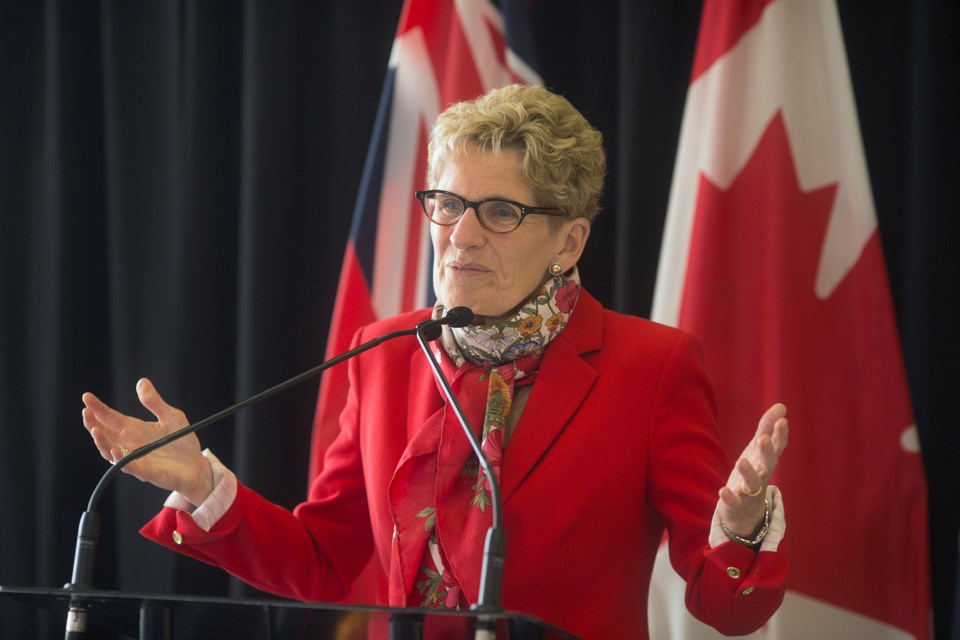By Réal Filion
The government of Ontario has initiated a pilot project of distributing a guaranteed minimum income to 4,000 randomly selected Ontarians in three different communities (a little less than $17,000 for a single individual).
Ontario thus joins a growing number of jurisdictions taking seriously an idea that has been around for some time: Ensuring a universal basic income to all.
This is a simple idea whose relevance and salience is beginning to take shape in many parts of the world. Although simple, it is a powerful idea, much like the idea of universal health care that Canadians have adopted and continue to defend against various kinds of objections.
Obviously, all ideas generate objections, but good ones can provide replies and thus, evolve to adapt to our needs.
My objective here, however, is not to defend the idea of a universal basic income against objections, but rather, to elucidate it in the light of our acceptance of the idea of universal health care.
Before speaking to the notion these two ideas share — an appeal to universality, to all of us — we should consider what the ideas are explicitly about and which distinguish them: One is about care and the other is about income.
While these two ideas appear to be quite different, they are in fact closely related, at least in the kinds of societies in which we currently live.
In all societies, human beings need to be cared for. This is obvious when we are very young and very old. However, in our societies, there is an expectation that, in between, we each shall take on the responsibility for caring for ourselves and for those with whom we share our lives.
In order to achieve that, in our market societies, we all need some kind of income to access the goods and services we need to live and flourish.
In many ways, this is an odd way to live: Consider the conundrum of someone who has nothing to eat and no money pushing an empty shopping cart in a large grocery store, displaying its wide variety and plenitude of goods.
Most of us take paid employment to ensure our income (we "work for a living"), but not all of us do. Interestingly, the income of the wealthiest of us is not directly tied to employment per se. This is important to remember, because there is a tendency to tie our conception of income directly to work, because that is what most of us experience.
Although it can come from different sources, we all need some form of income to live in our market society. Just as we all need to care for ourselves, we all need income.
Now, the fact that we all need to care for ourselves (and to care for those who cannot — yet or no longer — care for themselves) speaks to the vicissitudes of our condition as living beings: Each of us can become sick or suffer injury.
Hence, the acceptance in our society that each of us should have access to health care, a specific kind of care that recognizes our vulnerability, no matter how well we take care of ourselves. Similarly, the idea of a basic income is a specific kind of income whose access is guaranteed simply because of the vicissitudes of our condition as living beings, no matter how much we have or are willing and able to work.
Most of us may not be independently wealthy; each of us may not have access to employment where we live, or that employment may be insufficient to provide us with an income enabling us to live what we recognize as a decent life. Accepting the need for an accessible basic income for each of us is like accepting the need for accessible health care for each of us.
And of course, recognizing this need for each of us is precisely to recognize the universality of the need, which leads us to ensure the universal accessibility to health care and, so it is being proposed by many, to a universal basic income.
Such a universality is not denied when, being fortunate enough not to require immediate health care, we do not access it. Similarly, if we are fortunate enough to have other sources of income, we can either supplement that basic income or, if we are really fortunate, replace it altogether.
As such, the Ontario proposal reduces the basic income by half of any additionally earned income. In the end, our ideal is to ensure that each of us have access to the conditions for a decent life, conditions that, in our societies, include income.
Réal Fillion is a professor in the Department of Philosophy at the University of Sudbury.
